Update: This article was last updated on 8th January 2026 to reflect the accuracy and up-to-date information on the page.

In today’s digital age, we have tech-savvy children. While these present challenges, it also offers incredible opportunities for learning and development. One area where technology can make a significant impact is in language acquisition. Vocabulary apps for kids have emerged as powerful tools to enhance children’s language skills in a fun and engaging way. In this blog post, we’ll explore some of the best vocabulary apps available, explicitly designed to help children expand their vocabulary while having fun.
Whether you’re looking for the best app for vocabulary learning or the best free vocabulary app, these tools provide a fantastic way to support language development. If you’re a parent or educator seeking an app for vocabulary improvement, this guide will help you find the best vocabulary app for your child’s needs, and it’s a journey filled with joy and excitement.
Why Vocabulary Matters?
In a child’s learning journey, vocabulary acts as the key that unlocks doors to comprehension, communication, and critical thinking. Using the best vocabulary apps can enhance this process by providing engaging and interactive ways for kids to learn new words. As kids explore the world around them, the richness of their vocabulary shapes their ability to express themselves, understand others, and engage with various subjects.

Parents and educators can rely on vocabulary apps to make learning fun and practical, ensuring children build a strong language foundation. Finding the best app for vocabulary that aligns with a child’s needs can significantly improve their language skills. Whether it’s the best free vocabulary app or a premium one, these tools act as a bridge to better comprehension and communication.
Recommended Reading: Fun Ways To Improve Your Child’s Vocabulary
Vocabulary apps for kids emerge as powerful tools in nurturing their linguistic growth.
Here’s why it’s crucial for kids:
1. Communication Skills
Vocabulary is not just a collection of words but the cornerstone of effective communication. A robust vocabulary empowers children to articulate their thoughts, feelings, and ideas with clarity and precision. Using tools like the best vocabulary apps or a reliable vocabulary app can make learning new words both engaging and accessible.
Whether speaking or writing, a diverse lexicon enables them to express themselves more fluently and persuasively. For parents and educators seeking the best app for vocabulary, exploring options among the best free vocabulary apps can provide effective and budget-friendly solutions.
2. Comprehension
Understanding words is fundamental to understanding texts. A strong vocabulary enhances reading comprehension, allowing children to grasp the meaning of written material more easily. Using the best vocabulary apps can make this process engaging and efficient.
These vocabulary apps help children expand their word knowledge while enjoying interactive learning. They enable children to decode unfamiliar words, infer meanings from context, and comprehend complex concepts across various subjects. Finding the best app for vocabulary or the best free vocabulary app can provide tailored resources that cater to different learning styles. With the right app for vocabulary, children can strengthen their skills and build a robust foundation for academic success.
3. Critical Thinking
Vocabulary is intertwined with critical thinking skills. When children encounter new words, they are prompted to analyze their meanings, make connections with prior knowledge, and engage in deeper cognitive processing. A broad vocabulary fosters analytical thinking, problem-solving, and the ability to evaluate information critically.
Using the best vocabulary apps or even a simple vocabulary app can significantly enhance a child’s learning journey. These tools provide interactive ways to explore language, making it easier for kids to grasp complex concepts. Choosing the best app for vocabulary, especially one that suits your child’s needs, can transform their cognitive growth. Many of the best free vocabulary apps are designed to foster deep engagement with words, ensuring children not only learn but also apply their knowledge effectively.
4. Academic Achievement
Studies consistently demonstrate a positive correlation between vocabulary knowledge and academic performance. Proficient vocabulary skills are associated with higher scores in reading, writing, and standardized tests. A rich vocabulary equips children to excel in all academic disciplines, from language arts to mathematics and beyond. Using the best vocabulary apps can significantly enhance a child’s learning journey.
These vocabulary apps provide engaging and interactive ways to build language skills. Whether you’re looking for the best app for vocabulary improvement or the best free vocabulary app, incorporating such tools into daily routines can foster better academic outcomes. An app for vocabulary learning not only makes studying fun but also ensures children are well-prepared across subjects, giving parents and educators confidence in their children’s future success.
Best Vocabulary Apps For Kids
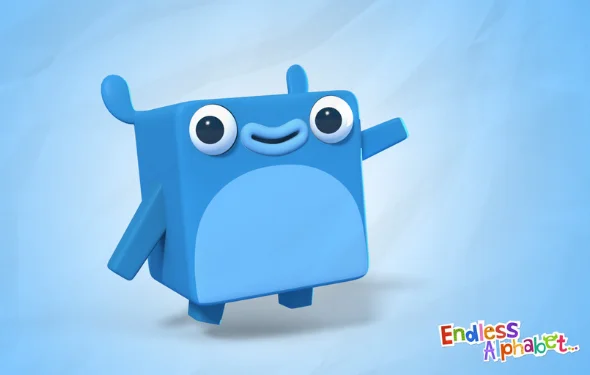
1. Endless Alphabet
With the help of this entertainingly interactive educational tool, set the scene for success in reading. With the cute monsters in Endless Alphabet, kids will love learning their ABCs and expanding their vocabulary. An interactive puzzle with talking letters and a brief animation that explains the definition are included for each word. Your child will cooperate and use terms like “gargantuan” before you know it!
Rating: 4.6
2. Word Tag- Word Learning Game
This vocabulary app for ages 7-13 sparks a love for language learning. Studies reveal up to 43% improvement in vocabulary test scores. Four personalized profiles track progress, aiding parents and educators in celebrating achievements. In an ad-free environment, Word Tag ensures focused learning, standing out amidst digital clutter. KidSAFE Coppa approved it, as it prioritizes child safety and offers peace of mind, ensuring parents and educators can trust the app’s educational value and safety features.
Rating: 4.4
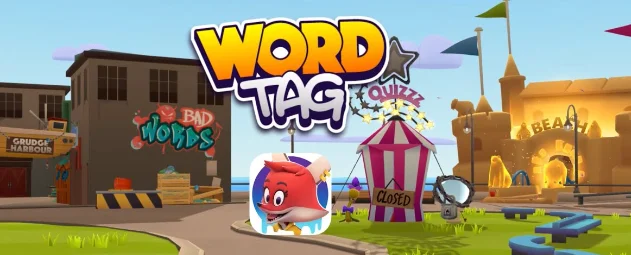
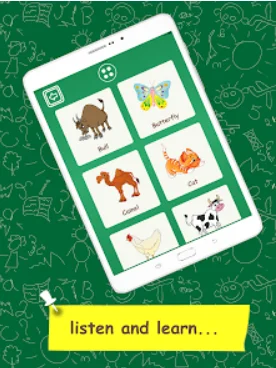
3. Learn English Vocabulary – Kid
This is the ultimate learning app for kids aged 2 to 8. Designed to make English learning fun and playful, it engages young learners in an immersive educational experience. Through interactive games, colorful animations, and engaging activities, children discover language. Whether beginners or starters, it caters to all levels, fostering a love for English from an early age.
Rating: 4.7
4. Duolingo
Duolingo has an engaging interface and gamified approach. Its colorful design and interactive lessons make learning fun and immersive, keeping children motivated. The app offers bite-sized exercises that cater to young learners’ attention spans, ensuring they stay focused and retain information effectively. With a variety of languages available, kids can explore different cultures and broaden their horizons. Duolingo’s adaptive nature tailors lessons to each child’s proficiency level, providing a personalized learning experience. Additionally, its audiovisual components aid in developing listening and pronunciation skills.
Rating: 5.0

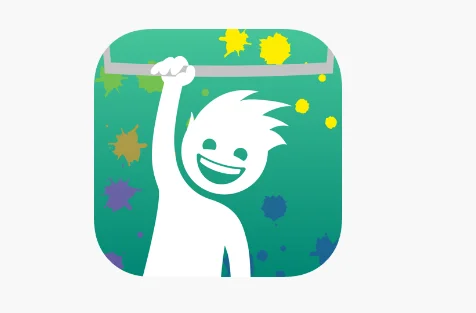
5. HangArt: A Literacy App
HangArt is another excellent vocabulary app for kids to enhance their vocabulary skills. This literacy app offers a unique blend of storytelling and word games, making learning enjoyable and effective. The app provides interactive activities such as word puzzles, quizzes, and matching games, which reinforce vocabulary retention. Its adaptive features adjust difficulty levels to suit each child’s learning pace, ensuring continuous progress.
Additionally, HangArt offers a vast library of age-appropriate content, covering various topics and themes to cater to diverse interests. Overall, HangArt fosters a love for language learning in kids by offering an immersive and entertaining educational experience.
Rating: 5.0
6. Memrise
Memrise is ideal for kids to learn vocabulary due to its engaging and efficient approach. With over 70 million users, it offers expertly designed lessons tailored for young learners. The app covers a wide range of languages, including Spanish, Korean, and Japanese, with lessons focused on vocabulary, listening, and speaking skills. It immerses learners in a virtual environment where they experience language as if living in the country. Memorise’s interactive features make learning fun and effective for kids.
Rating: 4.5
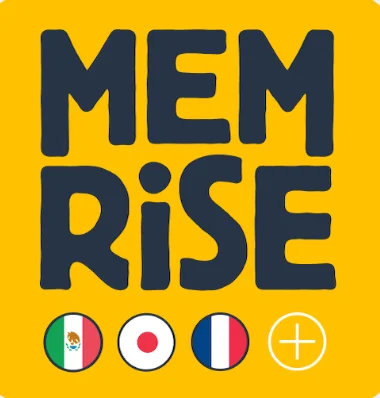

7. Quizlet
Welcome to a new era of AI-enhanced study with Quizlet. Now, you can immerse yourself or your child in any subject imaginable, where you can choose from over 700 million digital flashcard sets or create your own. As the #1 AI-enhanced learning platform, Quizlet offers personalized quizzes and practice tests, expert-written homework solutions, and transformative AI study tools.
Rating: 4.6
8. Wordup
WordUp is a vocabulary app for kids that offers an original four-step method for learning new vocabulary in English. The app’s basic idea is that learning the most widely used English terms is more important and beneficial than learning complex vocabulary. It’s one of those simple vocabulary apps that gets great reviews from its customers.
Rating: 4.6
Recommended Reading: VOCABULARY WORDS FOR KIDS TO IMPROVE THEIR LANGUAGE SKILLS
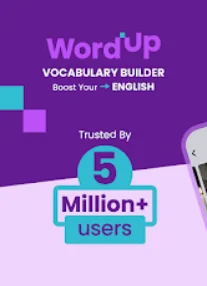
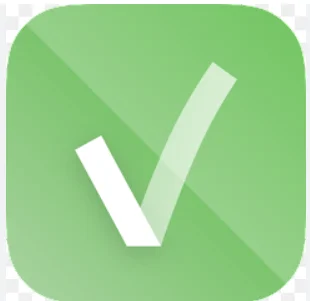
9. Vocabulary.com
Vocabulary.com is a straightforward yet powerful vocabulary-learning game. Students, instructors, and everyone else who wishes to speak English more fluently utilize it extensively. Unlike other vocabulary apps, Vocabulary.com does not provide pre-made word lists. This is a significant difference. Rather, you input the desired vocabulary into a personalized list. Students can use this to help them prepare for tests like the SAT and GRE.
Rating: 4.2
10. KnowWord
KnowWord is a word-finding game, so it is an easy option to start. To find the true word in time, you have to swap the letters. You can discover the word with text hints, find the word with picture tips, or play in timed mode without any hints.
Rating: Not given
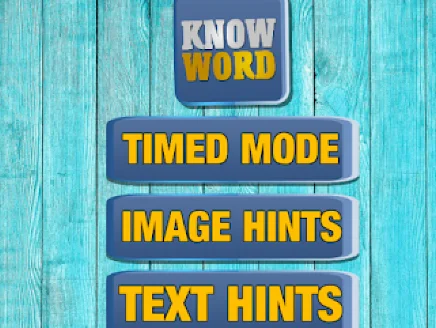
Empowering Kids with Vocabulary Apps

Educational apps have revolutionized the way children learn and interact with content. Fun vocabulary games and apps for kids offer a dynamic and engaging platform to enhance their word knowledge. Here’s how these apps contribute to children’s linguistic development:
1. Interactive Learning
Vocabulary apps leverage interactive features such as games, quizzes, and multimedia content to make learning enjoyable and immersive. These platforms are often considered the best vocabulary apps because they combine education with entertainment. Through engaging activities, children actively participate in building their vocabulary using the best app for vocabulary while having fun. Many users agree that the best free vocabulary app provides innovative tools to enhance learning, making it an ideal vocabulary app for all age groups. By offering a variety of activities, any app for vocabulary ensures that users remain motivated to improve their language skills.
2. Personalized Learning
Many vocabulary apps employ adaptive algorithms that tailor learning experiences to each child’s proficiency level and learning pace. These best vocabulary apps provide personalized feedback and progress tracking, enabling targeted instruction and ensuring that children receive the support they need to expand their vocabulary effectively. Whether you’re looking for the best app for vocabulary or the best free vocabulary app, these tools are designed to make learning engaging and effective. Choosing the right vocabulary app can help children stay motivated while improving their language skills.
3. Multisensory Approach
By incorporating audiovisual elements like animations, sound effects, and voice narration, vocabulary apps appeal to different learning styles and sensory modalities. This multisensory approach enhances retention and comprehension, making vocabulary acquisition more accessible and memorable for kids. For those searching for the best vocabulary apps, this approach ensures engaging and effective learning experiences. Whether you’re looking for the best app for vocabulary building or the best free vocabulary app, these features make any app for vocabulary not just educational but enjoyable for young learners.
4. Accessibility and Convenience
Vocabulary apps offer anytime, anywhere access to learning resources, allowing children to engage in meaningful vocabulary practice beyond the classroom. Whether you’re looking for the best vocabulary apps or the best free vocabulary app, these tools make it convenient for kids to learn new words. Whether at home, in transit, or during downtime, kids can seamlessly integrate vocabulary-building activities into their daily routines. Choosing the best app for vocabulary ensures that children can make the most of their learning journey. With a variety of vocabulary apps available, it’s easier than ever to turn everyday moments into opportunities for growth.
Conclusion
A rich vocabulary lays the foundation for children’s success in academics, communication, and critical thinking. By nurturing vocabulary development from an early age and leveraging the power of vocabulary apps for kids, parents, and educators can empower children to unlock their full potential and thrive in a language-rich world.
The best vocabulary apps can provide engaging and interactive tools that make learning new words fun and effective. Whether you’re searching for the best vocabulary app or the best free vocabulary app, there are a variety of options that cater to different age groups and learning styles. Consistently using a vocabulary app can help children expand their language skills, paving the way for better communication and critical thinking abilities. Finding the best vocabulary app for your child’s needs is a great first step toward building a strong vocabulary foundation.
Want to make your child future-ready with Robotics? Moonpreneur offers a tailor-made program. Reserve a spot in our free 60-minute workshop today and introduce them to the amazing world of robotics and innovations!

























